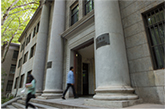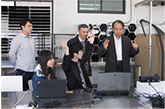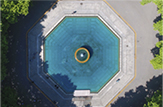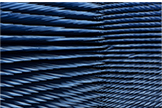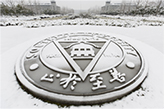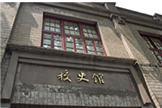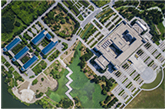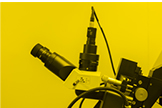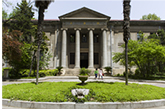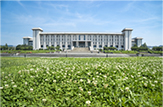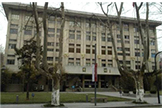
At a press conference held at European Organization for Nuclear Research on December 9 Beijing time, professor Samuel Chao Chung Ting, the Nobel Prize winner, director of the Alpha Magnetic Spectrometer(AMS) project, summarized the achievements of AMS experiment on International Space Station in recent five years, and authorized Southeast University to publish relevant results. Professor Luo Junzhou, dean of Southeast University’s School of Computer Science and Engineering, the general director of data processing and analyzing of AMS project in SEU, introduced that in the past five years, AMS has detected over 90 billion cosmic-ray events. It promoted people’s scientific understanding of the formation, acceleration and propagation of cosmic ray, and provided evidence for the exploration of dark matter. SEU’s AMS Data Processing Center ranks first in terms of the amount of data processed among seven AMS Data Processing Centers located around the world.
Among 90 billion cosmic-ray events detected by AMS in the past five years, there are 300 million proton events, 16.5 million electron events, 1.08 million positron events, 349 thousand antiproton events(including 2200 events of over 100 EV), and a large number of heavy nuclear(till iron) events. The latest results of AMS project, including positron proportion, antiproton-proton ratio, and the stream intensity of electron, positron, proton, antiproton, helion, as well as other nucleons, were published on the top journal in the field of physics, Physical Review Letters. These accurate and surprising findings promoted people’s scientific understanding of the formation, acceleration and propagation of cosmic ray, and provided evidence for the exploration of dark matter.What’s more, AMS probe detected a few suspected antihelium events with measurement accuracy of one over a billion, which indicates the dawn of antimatter detection.
In order to achieve an unprecedented accuracy, the original data of cosmic ray still have to be processed and analyzed. According to professor Luo, SEU participated in AMS project in 2002. The university has built one of the most important data processing and analyzing centers of AMS around the world. The center has successfully worked out a series of critical technical problems with the help of new advances of computer technology such as cloud computing and big data, and it allows data to be processed almost in real time. In the past five years, AMS Data Processing Center in SEU has processed and analyzed over 970TB data, contributed over 54 million CPU hours. It ranks first among seven AMS data processing centers located around the world. Moreover, more than 20 scholars of SEU were deeply involved in data processing work at CERN and MIT. Research of cloud computing at SEU is now in the scientific forefront. Professor Luo said that SEU has made a great contribution to present achievements of AMS project, and its work was highly estimated by professor Samuel Chao Chung Ting as well as cooperative team of AMS project.
AMS(Alpha Magnetic Spectrometer) is directed by the Nobel winner in physics, Professor Samuel Chao Chung Ting. It is the most powerful and sensitive probe for particle physics on International Space Station. AMS probe , with its high accuracy, marks the start of a new era in cosmic ray measurement. Professor Luo said that AMS probe will continue operating on International Space Station in the future. Advanced experiments like AMS will always bring us surprising findings of unknown world.


